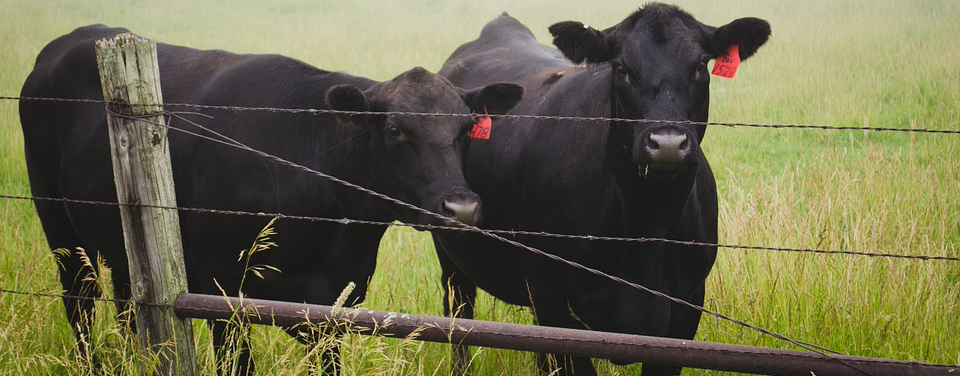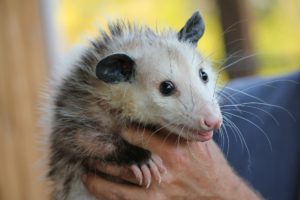Campus-based and Online
The MPH with a veterinary public health (VPH) concentration involves collaboration  in public health professional preparation between the College of Veterinary Medicine and the MPH program in the College of Education, Health, and Human Sciences. The veterinary public health concentration is available only to veterinary students enrolled in our DVM/MPH dual degree program, graduate veterinarians, and licensed veterinary medical technicians (LVMT).
in public health professional preparation between the College of Veterinary Medicine and the MPH program in the College of Education, Health, and Human Sciences. The veterinary public health concentration is available only to veterinary students enrolled in our DVM/MPH dual degree program, graduate veterinarians, and licensed veterinary medical technicians (LVMT).
One health is the concept that animal, human and environmental health are linked, and recognition of this link has created a need for veterinarians with a level of knowledge and skills beyond those gained during their professional education. Findings of the National Research Council, reported in Workforce Needs in Veterinary Medicine (2012), emphasizes the national need for more veterinarians to work in public health, epidemiology, and food safety among other specialty areas. Needs and opportunities for veterinarians are expanding in organizations ranging from public agencies dealing with animal and human health, to agencies and corporations charged with food safety and security from the farm to the consumer level. The  demand is increasing for veterinarians with additional education in food safety, food and animal production, zoonotic diseases, biosecurity, research methods and public policy. The veterinary degree alone is not enough to prepare veterinarians to meet these challenges and opportunities. A Master of Public Health (MPH) degree is an excellent and necessary addition to the DVM degree for those individuals wanting to make a career in public health and service.
demand is increasing for veterinarians with additional education in food safety, food and animal production, zoonotic diseases, biosecurity, research methods and public policy. The veterinary degree alone is not enough to prepare veterinarians to meet these challenges and opportunities. A Master of Public Health (MPH) degree is an excellent and necessary addition to the DVM degree for those individuals wanting to make a career in public health and service.
Veterinarians are the only health professionals trained in multi species comparative medicine and the profession links agriculture, medicine and even health issues at the household level through companion animals. Historically, the professions greatest contributions to society have been in food production and its safety and the prevention and control of zoonotic diseases. These roles continue and have assumed even more importance in the context of potentially deliberate acts of bio- or agroterrorism. American livestock, other domesticated animals, and free-ranging wildlife have been identified as targets by terrorists. The Centers for Disease Control and Prevention and the U.S. Department of Agriculture have warned veterinary colleges that veterinarians will likely be the front line in detecting terrorist-engineered epidemics. Veterinary students, graduate veterinarians and veterinary medical technicians must now learn to spot medieval terrors like bubonic plague, whether the symptoms erupt in livestock or companion animals.
Consider a career in veterinary public health to increase job opportunities. The the USDA Food Safety Inspection Service is the single largest employer of veterinarians in the US and possibly the world and this one agency estimates it will need 500 new veterinarians in the next few years. About half of the veterinarians in the Commissioned Corps of the US Public Health Service are currently eligible for retirement. The US Army Veterinary Corps needs 45 new veterinarians each year to meet their public health mission goals. Other opportunities for service exist at the state, municipal and university level. The MPH degree is necessary for many of these career opportunities.
For more information about the VPH concentration, contact:
Assoc. Prof.
Chika C. Okafor
okaforch@utk.edu
865-974-5611
Points of Pride:
VPH Graduates Meet Changing Workforce Needs
Since its founding in 2004, the DVM-MPH dual degree program has allowed nearly 30 veterinarians to complete the MPH degree to help fill the national need for more veterinarians in the public health sector. VPH faculty work closely with students to tailor their internship experiences to reflect their career goals. VPH students have completed applied practice experiences in Israel, Kenya, Ghana, and with the Centers for Disease Control and Prevention, US Department of Agriculture, National Institutes of Health, Tennessee Department of Health, and several local public health agencies. Four VPH students have taken their veterinary and public health knowledge and experience all over the world as officers in the US Army Veterinary Corps, and two VPH students who were approved for the master’s essay option have produced peer-reviewed publications based on their research.
Competencies:
Veterinary Public Health concentration of study
Upon graduation, an MPH/VPH graduate should be able to:
- Assess health related benefits and/or risks to individuals and communities associated with zoonotic or emerging diseases, the human-animal bond, foodborne illness and/or injuries associated with animals.
- Communicate health benefits and/or risks to individuals and communities associated with zoonotic or emerging diseases, the human-animal bond, foodborne illness and/or injuries associated with animals.
- Apply techniques of surveillance, recognition, prevention, control and/or management of infectious diseases, including zoonotic or emerging diseases, food borne illnesses, and/or potential bio- or agroterrorism agents.
- Evaluate programs and/or policy that aim to improve human health by fostering the human-animal bond or by reducing foodborne illness, zoonotic or emerging diseases, or hazards associated with animals.
- Describe the role of the federal government in ensuring the safety of foods of animal origin.
Students complete their learning with a 240-hour internship (also called the Applied Practice Experience). The Applied Practice Experience (APE) is an opportunity to use skills as a public health veterinarian. APE sites have been arranged at the Centers for Disease Control and Prevention, the Tennessee Department of Health, the East Tennessee Regional Health Office, the US Department of Agriculture Wildlife Services, and other relevant settings. APE is guided by a set of learning objectives related to public health competencies. Learning objectives are mutually developed by student and supervising preceptor during the first week of the internship. Read more about the Applied Practice Experience here.
Program of Study
- VPH Concentration Courses
- VPH Elective Courses (.pdf)
- MPH Foundation Courses(MPH foundation courses must be completed by all concentrations)
- Applied Practice Experience information
Become Certified in Veterinary Preventive Medicine (DACVPM)
Individuals who hold a DVM and complete UT’s MPH with a VPH concentration are well-prepared to take the Veterinary Preventive Medicine board exam. Some of the most rewarding jobs in veterinary public health are filled by board certified veterinarians. In addition to being professionally prepared as a veterinarian, a person with this certification is credentialed after demonstrating competency-based criteria established by the American College of Veterinary Preventive Medicne (ACVPM). The rate of successful completion of the exam by UT graduates is highly encouraging, and some graduates have gone on to achieve high level positions in federal, state, and local organizations.

